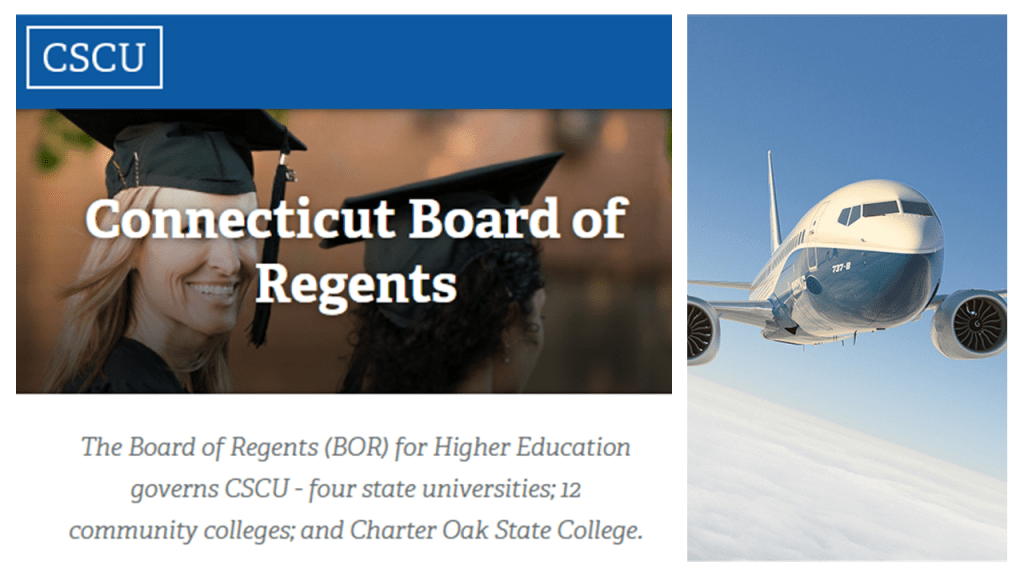An opinion piece published in The Connecticut Mirror on 22 December 2020.
For more than 15 years I have taught a graduate course where students perform formal failure analysis of senior management decisions. We study disasters such as the Wells Fargo fraud, Equifax data breach, GM faulty ignition switch, Morandi bridge failure, Vale mining disaster, defective Takata airbags, and the Boeing 737 Max. Over the years we have studied some 70 disasters, all of which prove to be very costly to the organization and its stakeholders in lives, money, and reputation.
As you might expect, ominous patterns emerge in senior management thinking and decision-making. All cases feature several untested beliefs and assumptions that prove to be critical factors in failed leadership decision-making. There is an abundance of illogical thinking, the top six being abuse of expertise, false assumptions, avoiding the force of reason, red herring, special pleading, and expediency. Recurring cognitive biases include status quo, estimating, anchoring, sunk cost, and confirming evidence. In general, senior managers critical thinking skills are poor, sometimes to the point of being dangerous.
What students learn is that the three things top leaders are most confident about – analysis, logical thinking, and decision-making – are the three things leaders should be the least confident about. Senior management information processing is highly error-prone, most often because they possess an idealized or theoretical understanding of the organization, how it functions, and why, and are closed-minded when counseled by people at the bottom of the organization and external stakeholders. Leadership decision-making would be improved if they acted upon, not merely listen to, the people who do the work and who are affected by the work.
In the case of the 737 Max aircraft development program and two subsequent crashes that killed 346 people, senior management had an eye single towards reducing aircraft development costs and controlling processes. As is usually the case, one’s high status in the hierarchy makes them overconfident and fools them into thinking they know how to reduce costs and improve processes. Boeing’s leaders understood neither. Unfortunately, the reality of costs and processes at the working level become abstracted at executive level; fact-based sensory perceptions give way to an array of aged and faulty preconceptions.
In addition, Boeing’s leaders, like most business leaders, have a success orientation wherein success is preordained by virtue of one’s status, and failure is either not possible or obviously the result of incompetence in the layers far below them. In Boeing’s case, management’s quest to save several billion dollars in aircraft development costs and pilot training has cost the company more than 20 billion dollars so far and likely as much as 50 billion dollars in total. Such penny-wise, pound-foolish decisions were found in nearly every failure analysis case we studied.
Boeing’s failure, like the other 70 failures we studied, invite intense and broad-based scrutiny by news organizations, politicians, attorneys, and the public. This scrutiny, and the resulting expensive lawsuits, do incalculable damage to the reputations of both the organization and its leaders. The sustained exposure of senior management’s mistakes is both embarrassing and long-lasting and awards a devastating loss of social status in relation to one’s peers.

Like Boeing’s leaders, The CSCU Board of Regents (BOR) proposed Collective Bargaining Agreement with the American Association of University Professors reflects a desire to reduce costs and control processes without understanding how higher education functions and why, its processes, or how to improve them. They have a proven track record of largely ignoring the counsel of the people who do the work, staff and faculty, and who are affected by the work, students, families, and employers.
The BOR also appears to have a success orientation, preordained by their high status, and are unwilling to consider the likelihood of failure, given the obvious lack of critical thinking. The changes and redactions to the contract reveal numerous untested beliefs and assumptions, and the usual forms of illogical thinking and cognitive biases – also to the point of being dangerous. Just as Boeing was transformed from an engineering company producing a quality product to a finance company producing defective products, the proposed contract transforms Connecticut State Universities from producing a quality product that fulfills the needs of students, the State of Connecticut, and society, to a finance organization that mistakenly assumes quality is a given.
Another lesson learned from carefully analyzing failed leadership decisions is that most leaders merely copy one another’s solutions to problems. There is little original thinking at the top. This too is apparent in the BORs proposed Collective Bargaining Agreement. There is no doubt that many aspects of higher education need to be improved, but there are many different methods for doing that. Fiat is one method, which the BOR apparently sees as best for them despite any negative impact that it may have on others. Another method is collaborative problem-solving using scientific thinking, to move difficult problems from the realm of preconceptions to the realm of facts to stimulate creative and innovative solutions that are mutually beneficial. It is clear that the BOR leadership has settled on opinion-based, ad-hoc problem-solving, as Boeing leadership did, instead of systematic, fact-based collaborative problem-solving.
In the many disasters that we have studied in my course, yet another lesson is clear: all the problems that led to the disaster were known by people at lower levels of the organization. They earnestly, though not always diplomatically, warned their leaders but were consistently ignored, ostracized, demoted, or fired. When fact-based workers warn leaders of problems, and they do not listen and fail to take action, then those in charge exhibit negligence characteristic of amateurs, not the professionals they believe themselves to be.
